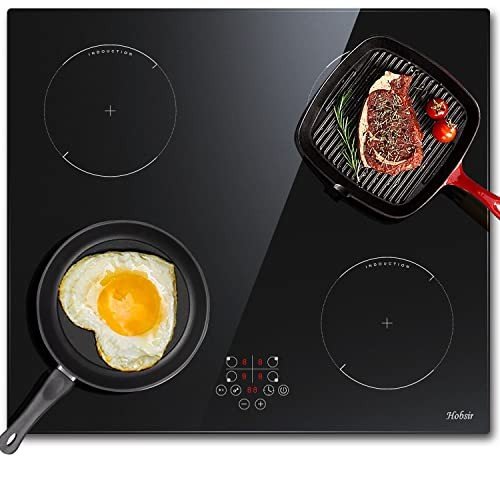Understanding Cookers and Hobs: A Comprehensive Guide
Cooking is an integral aspect of daily life, and the evolution of kitchen appliances plays a considerable role in how efficiently and successfully individuals prepare their meals. Among these devices, cookers and hobs are two of the most important instruments discovered in modern-day kitchen areas. Ovens Sales looks into the distinctions in between cookers and hobs, analyzes their different types, and offers insights on their features, upkeep, and choice process.
What are Cookers and Hobs?
Cookers
Cookers are extensive kitchen devices developed for cooking jobs, generally integrating an oven and a hob. They are available in different configurations and types, accommodating diverse cooking requirements and choices.
Hobs
Hobs, on the other hand, are more concentrated appliances mostly utilized for boiling, frying, and other stovetop cooking techniques. Hobs can be standalone units or an integrated part of bigger cookers.
| Function | Cookers | Hobs |
|---|---|---|
| Function | Combines oven and hob | Stovetop cooking just |
| Design | All-in-one system | Separate system or integrated |
| Types | Electric, gas, double fuel | Gas, electric, induction |
| Setup | Permits more flexibility | Built into the countertop |
| Rate Range | Generally higher | Varies commonly |
Types of Cookers
1. Electric Cookers
Electric cookers use electrical energy as their primary source of power. They frequently include a built-in oven and numerous cooking zones on the hob.
Advantages:
- Even heat distribution
- Available in numerous styles (e.g., freestanding, integrated)
2. Gas Cookers
Gas cookers operate on natural gas or melted petroleum gas (LPG). They offer immediate heat control, making them a favorite amongst expert chefs.
Benefits:
- Instant heat modifications
- More affordable functional expenses
3. Double Fuel Cookers
Double fuel cookers integrate the heat of gas with the performance of electric ovens. This setup enables the very best of both worlds, supplying control and constant results.
Benefits:
- Flexible cooking alternatives
- Accurate control over stovetop cooking and baking
4. Range Cookers
Variety cookers are larger and more effective than standard cookers, including numerous ovens and hobs for extensive cooking jobs.
Benefits:
- Ideal for big families or cooking for events
- Uses numerous cooking alternatives in one device
Kinds of Hobs
1. Gas Hobs
Gas hobs are favored for their quick heating and strong flame, making them outstanding for burning and stir-frying.
Advantages:
- Instant heat and control
- Compatible with any kind of pots and pans
2. Electric Hobs
Electric hobs heat up using electric coils or glass-ceramic surface areas, offering a modern look and effective cooking.
Advantages:
- Easier to clean up
- Consistent surface suitable for numerous pots and pans
3. Induction Hobs
Induction hobs use electromagnetic fields to heat pots and pans directly, providing quickly and energy-efficient cooking.
Advantages:
- Safe (cool surface area after removing cookware)
- Energy-efficient and accurate
4. Solid Plate Hobs
These standard hobs utilize strong electric plates that warm up slowly.
Advantages:
- Rugged and resilient
- Generally more budget friendly than other types
Secret Features to Consider
When choosing a cooker or hob, several features ought to be taken into consideration:
- Size and Space: Consider the size of your kitchen and the quantity of office required.
- Cooking Style: Choose based upon choice-- gas for control, induction for efficiency, etc.
- Performance Ratings: Look for energy-efficient designs to decrease utility bills.
- Alleviate of Cleaning: Smooth surfaces help with easy upkeep.
- Security Features: Automatic shutoff, flame failure gadgets, and child locks boost security.
Upkeep Tips
Maintaining cookers and hobs extends their life-span and guarantees safe operations.
- Routine Cleaning: Wipe down surface areas after use to avoid buildup.
- Check Seals: Check oven door seals frequently for wear and tear to preserve efficiency.
- Service Regularly: Schedule professional maintenance at least as soon as a year.
- Appropriate Cookware: Use pots and pans suitable for your hob type to prevent damage.
Frequently Asked Questions (FAQs)
What is the distinction between a cooker and a hob?
A cooker integrates an oven and hob in one system, while a hob is normally a standalone appliance for stovetop cooking.
Do I require an expert to set up a gas cooker or hob?
Yes, professional setup is recommended for gas devices to guarantee security and compliance with local regulations.
Can I use any type of cookware on induction hobs?
Induction hobs require magnetic pots and pans. Stainless-steel or cast iron pots work best. Non-magnetic materials will not warm up.
Are electric cookers more energy-efficient than gas cookers?
While both have benefits, electric cookers tend to be more energy-efficient overall, specifically with modern, high-efficiency designs.
How frequently should I clean my cooker or hob?
It is best to clean them after each use and perform an extensive cleansing weekly to prevent accumulation and residue.
Understanding the distinctions, features, types, and maintenance ideas for cookers and hobs is necessary for any home cook. By choosing the ideal device suited to their culinary needs, users can boost their cooking experience, making meal preparation an effective and enjoyable task. Whether choosing the instant control of gas or the streamlined effectiveness of induction, choosing the proper cooker or hob can cause an especially boosted kitchen experience.

